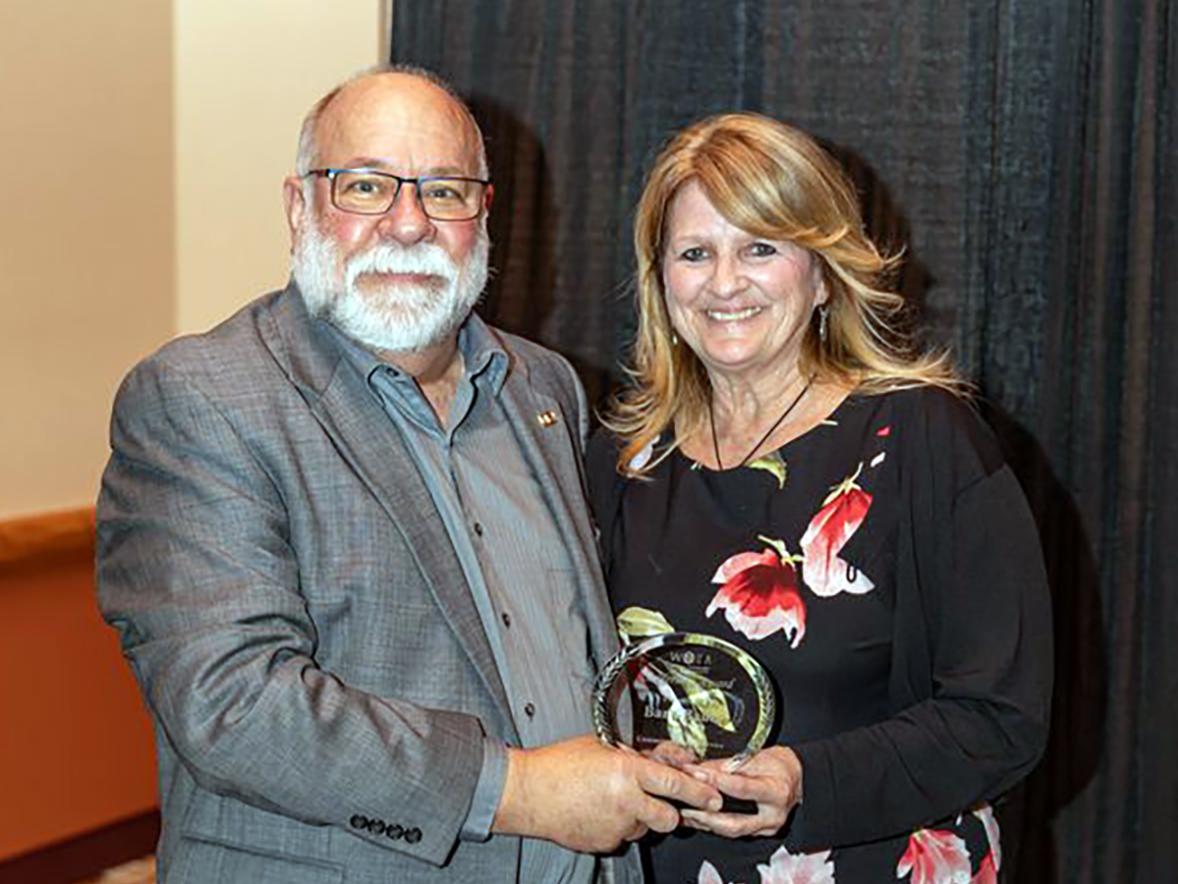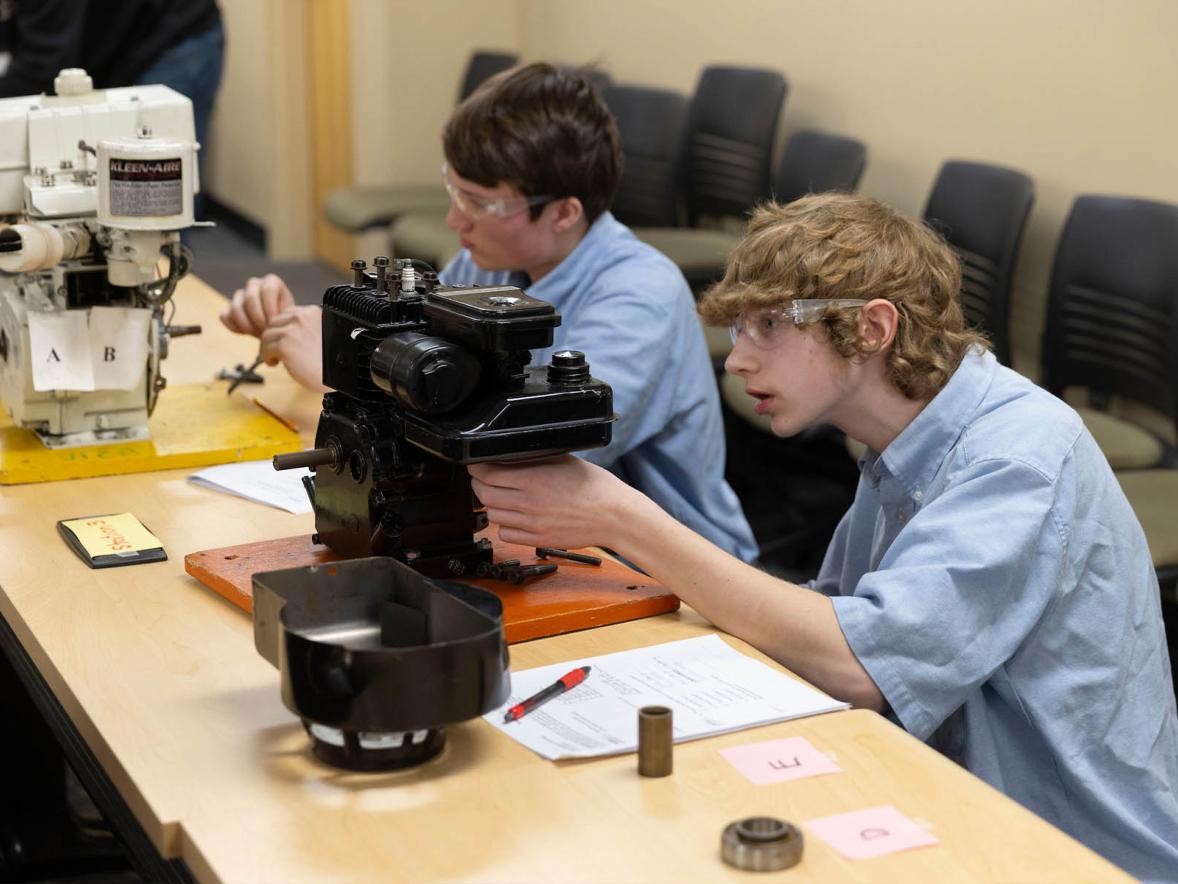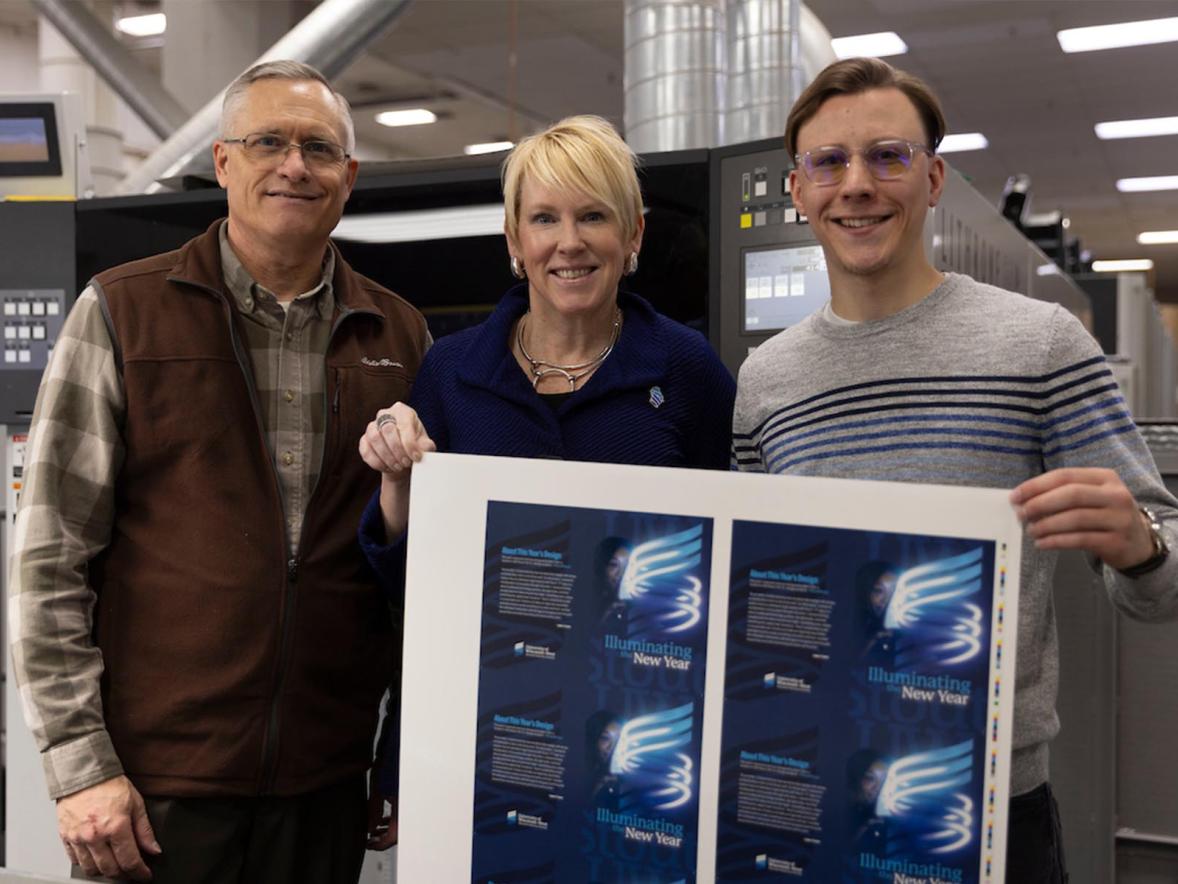Make a Difference. Teach Tech Ed.
UW-Stout's Bachelor of Science in Technology Education (Tech Ed) degree will provide you with teaching certification in technology education. With the continued growth of STEM careers, graduates with this degree are in high demand as teachers and leaders. You'll be ready to instruct at the middle school, junior high, and high school levels, but may also choose to take your versatile competencies into business and industry. You'll learn in a hands-on environment and gain experience instructing K-12 classrooms.
100% of Graduates Are Employed or Continuing Education.
Career-Defining Curriculum
In addition to preparing you to teach a variety of topics about technology in junior and senior high school settings, the Technology Education program also provides a rich background in training and technology that can be applied to careers in business and industry. Combining general and professional teacher education courses with the study of concepts and skills native to timeless, as well as cutting-edge technologies, is a distinguishing feature of this program.
Our Technology Education program students represent a very diverse population: students who have recently left the military, students who are also pursuing athletic interests, non-traditional students who are exploring a career change, as well as new freshmen who have just finished their high school education. Whatever experiences you have had, there are students at Stout and in Technology Education who have a similar background.
"The people at UW-Stout are some of the kindest and most welcoming people I've ever met. I have been blessed to find so many lifelong friends, as well as a program that suits me perfectly. I can't imagine being anywhere else for my education."
~ Meghan CopsB.S. Technology Education
Use the Request Information form to receive a program summary and learn more about the Bachelor of Science degree in Technology Education.
Request Information
Learn to Do More in Our Labs
New First-Year Students
- There are no additional requirements for new first-year students.
Transfer Students
- Earn a cumulative GPA of 2.75 or higher from the last institution attended.
Students who meet this requirement will be admitted to the university in their chosen Education major. Subsequent acceptance into a teacher education major and enrollment in professional education coursework will require successful completion of Benchmark I requirements. Additional information can be found at the School of Education website.
Students whose cumulative GPA is lower than the 2.75 will be reviewed and considered on a case-by-case basis for admission consideration.
Application
To apply for the on-campus or online Bachelor of Science degree in Technology Education, you need to apply to UW-Stout.
Financial Aid
Students who are attending another institution, but are planning to receive their degree from UW-Stout, may be eligible to receive aid from UW‐Stout. In these cases, UW‐Stout is considered the Home Institution and the other campus is considered the Visiting Institution.
Transfer Students
Note: When filling out the application form, be sure to make a note in the student comment section that you intend to apply to the "online program."
Upon completion of the program, students will be able to:
- Understand how learners grow and develop, recognizing that patterns of learning and development vary individually within and across the cognitive, linguistic, social, emotional, and physical areas, and designs and implements developmentally appropriate and challenging learning experiences (InTASC Standard 1).
- Understand individual differences and diverse cultures and communities to ensure inclusive learning environments that enable each learner to meet high standards (InTASC Standard 2).
- Create environments that support individual and collaborative learning, and that encourage positive social interaction, active engagement in learning, and self-motivation (InTASC Standard 3).
- Understand the central concepts, tools of inquiry, and structures of the discipline(s) taught and creates learning experiences that make these aspects of the discipline accessible and meaningful for learners to assure mastery of the content (InTASC Standard 4).
- Understand how to connect concepts and use differing perspectives to engage learners in critical thinking, creativity, and collaborative problem solving related to authentic local and global issues (InTASC Standard 5).
- Understand and use multiple methods of assessment to engage learners in their own growth, to monitor learner progress, and to guide the teacher’s and learner’s decision making (InTASC Standard 6).
- Plan instruction that supports every student in meeting rigorous learning goals by drawing upon knowledge of content areas, curriculum, cross-disciplinary skills, and pedagogy, as well as knowledge of learners and the community context (InTASC Standard 7).
- Understand and use a variety of instructional strategies to encourage learners to develop deep understanding of content areas and their connections, and to build skills to apply knowledge in meaningful ways (InTASC Standard 8).
- Engage in ongoing professional learning and uses evidence to continually evaluate his/her practice, particularly the effects of his/her choices and actions on others (learners, families, other professionals, and the community), and adapts practice to meet the needs of each learner (InTASC Standard 9).
- Seek appropriate leadership roles and opportunities to take responsibility for student learning, to collaborate with learners, families, colleagues, other school professionals, and community members to ensure learner growth, and to advance the profession (InTASC Standard 10).
Note: The program objectives are based on the Interstate Teacher Assessment and Support Consortium (InTASC) standards, which have been adopted as the state teacher standards by the Wisconsin Department of Public Instruction (DPI).
If you are considering the Technology Education program, be sure to develop skills in writing, math and science. It is also helpful to have some technical background in the areas of materials, energy and power, and communication. An understanding of computer applications is a plus.
Starting Out
In your first year as a Technology Education student, you’ll balance general education, professional education and technical laboratory opportunities. General education courses include English composition, speech, psychology, sociology and math. You’ll also take an orientation course in the professional studies sequence to help you plan your program. Although you will be assigned a faculty adviser for assistance with program planning, additional help is available from the Advisement and Career Center, the Counseling Center, and Career Services.
A technical college transfer option is available for students enrolling in the technology education program who have completed a diploma or associate degree in a relevant technical field (e.g., automotive technology, electronics, technology, tool and die, and the like).
As You Progress
Your schedule will continue to include liberal studies as you advance, but more emphasis is placed on technical and professional courses. Through technical laboratory coursework, you will gain the versatility in content and skills you need to teach in public schools. In fact, you will also participate in several student teaching opportunities.
Most of our graduates find jobs teaching industry and technology based subjects at the junior or senior high school level. Some graduates who have industrial experience are hired as instructors in various vocational/technical school programs. Because of the technical expertise of our graduates, others find employment in business and industry.
Stout Graduates at Work
- Junior/senior high schools in:
- Wisconsin Rapids, Park Falls, Oakfield and Racine, Wis.
- Woodstock and Addison, Ill.
- Frederick, Md.
- Springfield, Minn.
- Manufacturing engineer
Metalist Industries - Production control supervisor
Semling-Menke Co. - Technical service representative
Chevrolet Motor Division - Product development
Guzman Corp. - Graphic arts management
Weston Engraving Co. - Technical trainer
Allen Bradley
Advisory Committee Members
| Jeff | Ballentine | Tech Ed Teacher Altoona | Altoona School District |
| Barb | Bauer | Program Director | |
| Craig | Cegielski | Technology Education Teacher | Eleva/Strum Schools |
| Kevin | Dietsche | STEM college instructor | UW-Stout |
| Jim | Dotta | Member of Education foundation | |
| Nick | Gilles | Principal and former tech ed teacher | Clear Lake High School |
| Paul | Girolamo | CVTC | Eau Claire WI |
| Jerome | Johnson | Instructor | CSTEM/Engineering and Technology |
| Brent | Kindred | Consultant | WI Department of Public Instruction |
| Kevin | Mason | CEHHS/SOE | |
| Bob | Morehead | Tech Ed Teacher Chetek Weyerhouser | Chetek |
| Ryan | Sterry | Tech Ed Instructor | Menomonie |
| Anna | Stramschour | UW-Stout Student | |
| Jeff | Sullivan | Dean at CVTC | Eau Claire WI |
| Josh | Zalewski | Tech Ed Instructor | Fab Lab Merrill |







